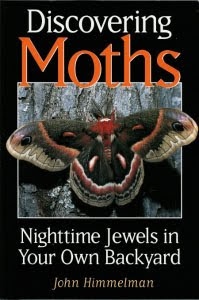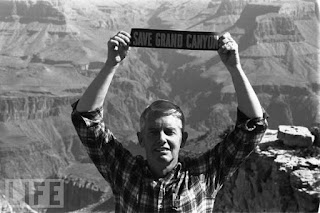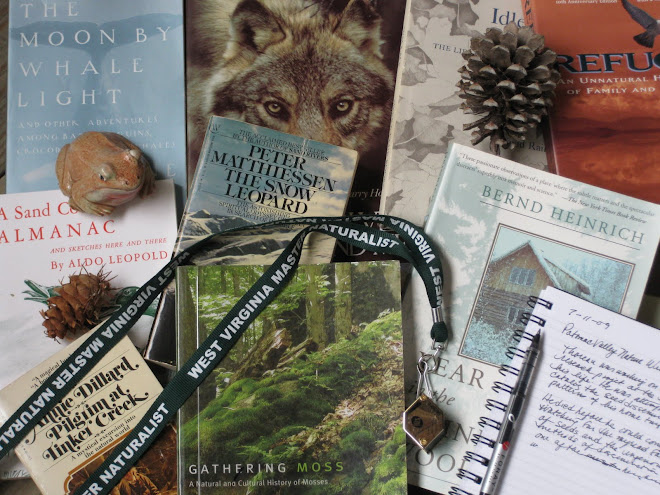
On February 27, seven old faithfuls and three perky guests bubbled with opinions about Alice Outwater's
Water: A Natural History. Our group included a water quality scientist, and extremely knowledgeable members of the local Watershed advocacy association, who contributed much to our discussion.
Outwater's book ripples with fascinating details plumbed from Herculean research into North America's past. Chapter by chapter, the book mixes a toxic brew of evidence: civilization has damned our continent's ecological systems that formerly provided a continuously self-cleaning, self-renewing water cycle. As the Fox admonished the Little Prince, "You become responsible forever, for what you have tamed." Without the natural wetlands, free flowing rivers, and intact forests, we awkwardly, expensively and unsuccessfully attempt to use technology and regulations to produce what was once provided free, by Mother Nature. The book underscores how all aspects of nature are related, and work in concert. Removing one species can have a domino effect. For example, Europeans' lust for fashionable and supremely warm fur almost extincted the North American beaver, the wetlands engineer par excellence.
Comments of amazement and uncomfortable heightened consciousness at what has been lost through ignorance, negligence, short-sightedness and sheer greed, in only a few centuries, were followed swiftly by queries as to what can be done? The sheer volume of human population, agricultural, mining, manufacturing uses and abuses, not to mention polluting sources such as
pharmaceuticals and personal care products, when taken together suggest hopelessness as to ever restoring a natural balance. We wondered--are other, less developed countries learning from our mistakes?
Members mentioned the Green Belt tree planting movement in Africa, and the use of human waste as fertilizer in China. A member who had recently returned from visiting a South African city noted that power outages are routine, occur without warning, and are simply adapted to by the populace. In Croatia, coal falls from the sky. In the Middle East, conflicts are over access to water of any kind, quality is a secondary issue. We are lucky to live where there are regulations on the books, even if they are imperfectly enforced, and as unfunded mandates, become a cruel mirage.
Our watershed association visitors (See
Opeqon Watershed, Inc. and
Opequon Creek Project ) offered that West Virginia has the most dams of any state in the nation--494 at last count. The WV EPA has determined the most polluted watersheds are home turf: Sleepy Creek and Opequon. The association hosts two water cleanups yearly. The Associations' monitoring for E. coli has been discontinued for now. We know that rain storms spike it. The EPA safe standard for E. coli is 235 MPN/100 mL--a storm event raises it to 1600. Waste water treatment plants, agricultural runoffs, raw sewage are primary culprits.The
WV Department of Agriculture is monitoring the streams. Unfortunately there is no one site a concerned citizen can go to to see all the different monitoring results gathered by various entities that relate to water quality.
The EPA has a
Watershed Implementation Plan that specifies upgrading of all Wastewater treatment plants. As demonstration projects, the association built five rain gardens throughout the area to retain run off but it has been found that they require so much maintenance that they are not as efficient mechanisms as originally believed. Riparian buffers--three rows of trees by the sides of rivers and streams--do much to prevent erosion and minimize runoff. There are federal funds and other types of grants available to offset costs. The Association holds several tree plantings yearly and draws folks from all over.
How can we take action? Join and become active in water quality activist groups like your local Watershed Association or Riverkeepers group, as well as chapters of national groups such as the Sierra Club. Donations are always welcome! Write to your local, state and national legislators, and agencies such as the EPA. Participate in water monitoring projects. Vote. Think about your consumer choices. If you own property, think thrice before building, altering the landscape, removing natural flora, or using pesticides and fertilizers. Educate yourself. Dispose of waste responsibly. For example, keep unused pharmaceuticals out of the waste stream. Contact your local hazardous waste disposal agency and check out these guidelines
here.
We thank Alice Outwater for her work. We now have a thirst to learn more, do more to protect our water.
 OUR AUTHOR FOR APRIL 2011 is John Himmelman and we are reading his Discovering Moths: Nightime Jewels in Your Own Backyard. From the back cover: Moths offer an incredible variety of color, form, behavior, and ecological significance, but since most of them are active at night, we are often simply unaware of them. John Himmelman opens our eyes, showing how moth watching can offer as much beauty and fascination as birding.In lively, accessible prose, he explains the intricacy of moths' life cycle, their importance in nature, and how just a tiny handful of the many moth species are truly pests to humans. He tells how to attract moths with lights and bait, when and where to observe them, and how best to photograph these tiny subjects. Entertaining personal anecdotes and short profiles of some of the country's foremost "mothers" add human interest.
OUR AUTHOR FOR APRIL 2011 is John Himmelman and we are reading his Discovering Moths: Nightime Jewels in Your Own Backyard. From the back cover: Moths offer an incredible variety of color, form, behavior, and ecological significance, but since most of them are active at night, we are often simply unaware of them. John Himmelman opens our eyes, showing how moth watching can offer as much beauty and fascination as birding.In lively, accessible prose, he explains the intricacy of moths' life cycle, their importance in nature, and how just a tiny handful of the many moth species are truly pests to humans. He tells how to attract moths with lights and bait, when and where to observe them, and how best to photograph these tiny subjects. Entertaining personal anecdotes and short profiles of some of the country's foremost "mothers" add human interest.  Illustrated with the author's own superb pen-and-ink illustrations and spectacular close-up photographs of moths found in the eastern U.S., this book will be of interest not only to nature enthusiasts, but also to parents, birders, butterfly aficionados, and anyone interested in the outdoors. John Himmelman is the author of numerous books and articles on nature subjects. A cofounder of the Connecticut Butterfly Association, he has lectured and led field trips throughout the US. "My interest in moths probably evolved along with my tendency to stay up at night," he says. "The fact that I could find hundreds of different kinds in my own yard, and that I find their form, function, and beauty a marvel, helped make them an obsession."
Illustrated with the author's own superb pen-and-ink illustrations and spectacular close-up photographs of moths found in the eastern U.S., this book will be of interest not only to nature enthusiasts, but also to parents, birders, butterfly aficionados, and anyone interested in the outdoors. John Himmelman is the author of numerous books and articles on nature subjects. A cofounder of the Connecticut Butterfly Association, he has lectured and led field trips throughout the US. "My interest in moths probably evolved along with my tendency to stay up at night," he says. "The fact that I could find hundreds of different kinds in my own yard, and that I find their form, function, and beauty a marvel, helped make them an obsession." On his website there are links to his photos of moths and amphibians, and information about his other books.
On his website there are links to his photos of moths and amphibians, and information about his other books.





